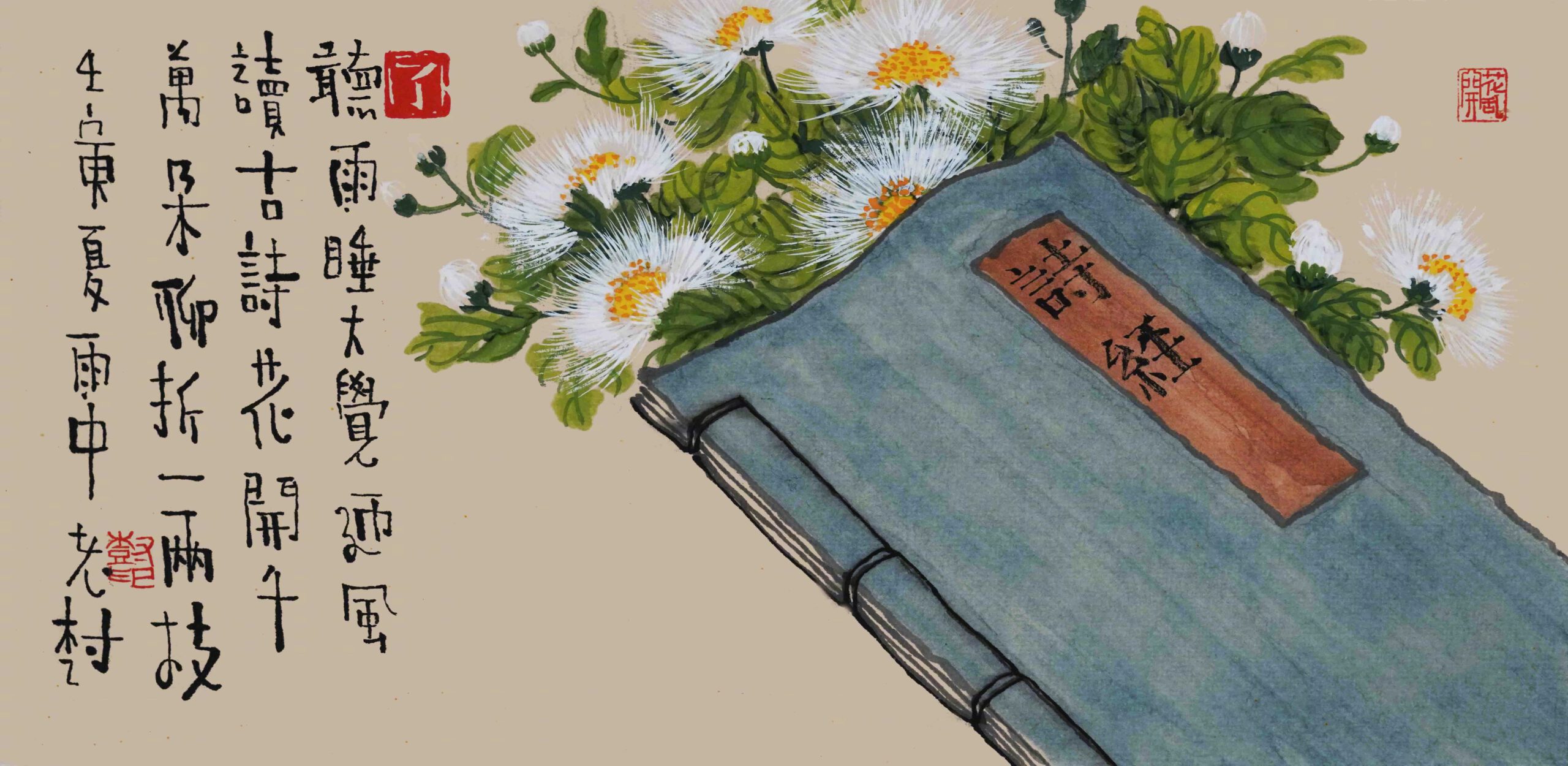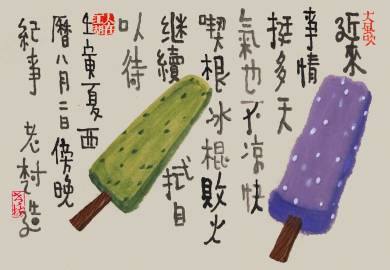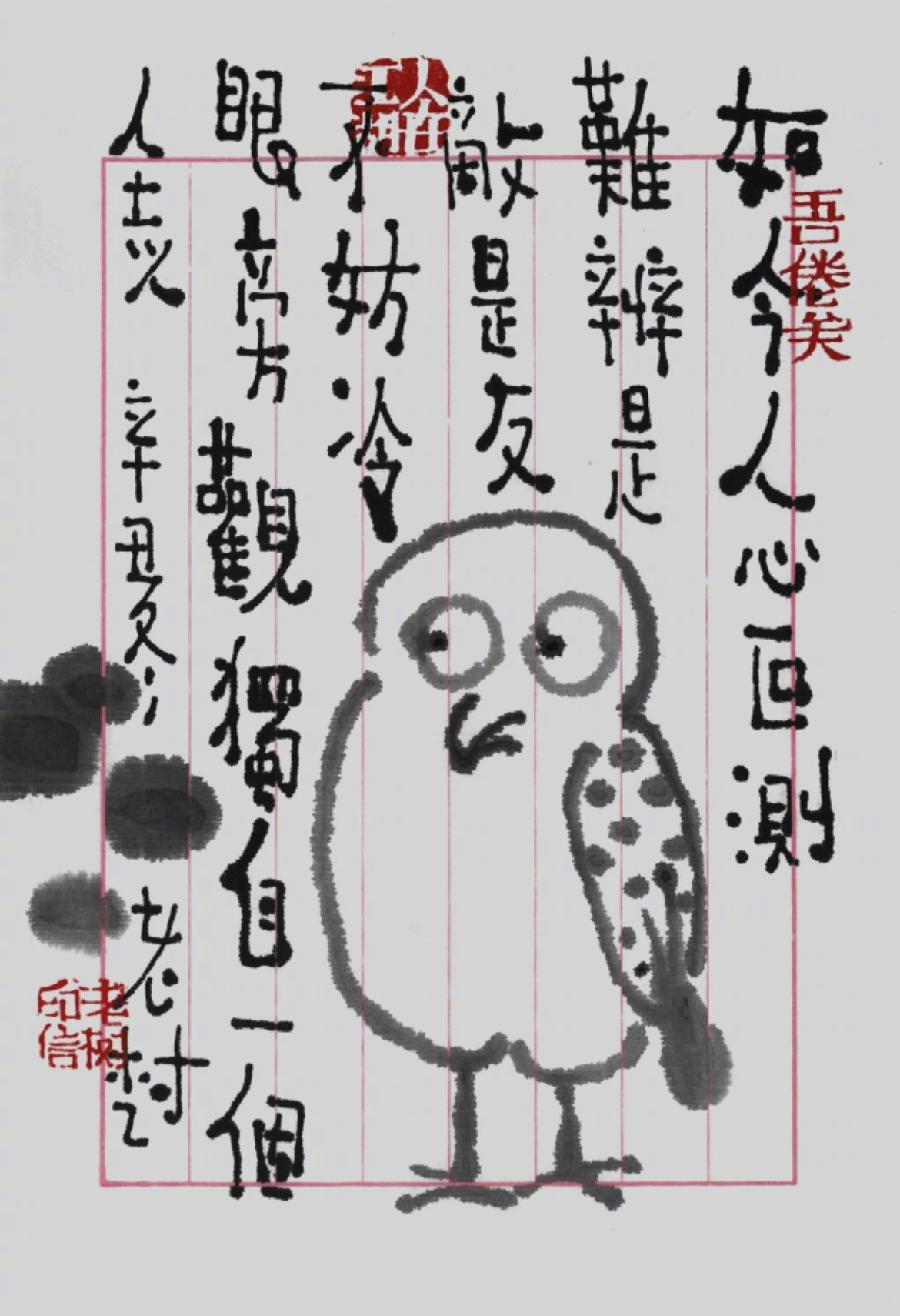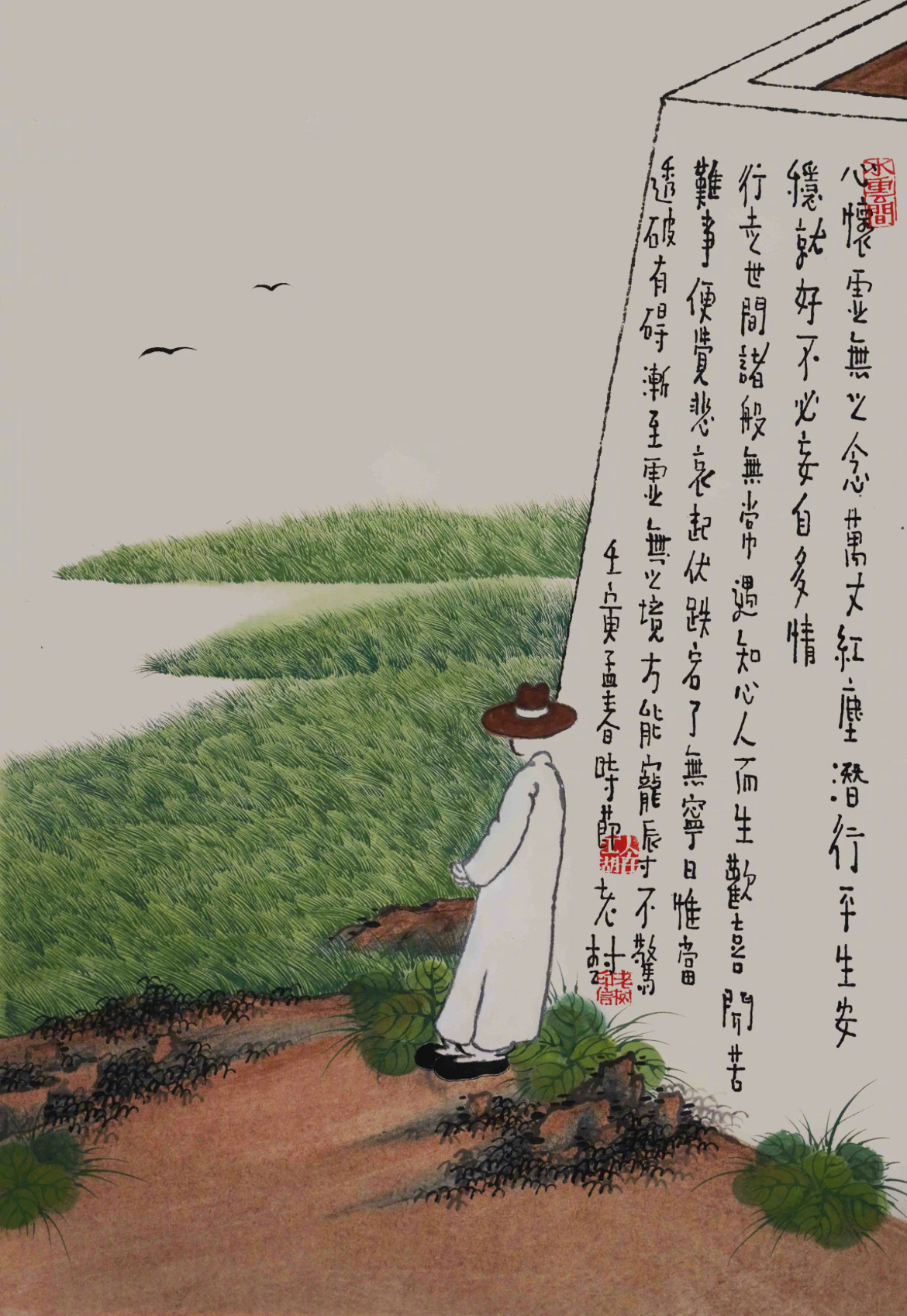New Sinology Jottings
We last encountered Lao Shu in the virtual pages of China Heritage when commemorating Dai Qing 戴晴. We also featured his work when introducing Making a Case for Humanity Over Banditry 《人間不是匪幫》, a collection of essays on China’s forever crisis by Xu Zhangrun 許章潤. The inscription on the Lao Shu painting that we selected on that occasion read:
‘As autumn winds rustle amber leaves I lock myself away to read while others busy themselves in the world. In the fall all flowers lose their petals.’
秋風漸漸涼,木業次第黃。閉門讀閒書,任人到處忙。深秋繁花落去。
Again, we chose a painting by Lao Shu to mark 1 July 2020, the day that Hong Kong decisively fell to Beijing (see ‘Thoughts on 1 July 2020’). The inscription on that work read (in my translation):
Half the year’s gone and I’ve got nothing to show for it.
Apart from trying to sleep through it all, oblivious
The only thing I’ve had to contend with is eating my fill.
Occasionally, I’d take a look at what’s on the news
But that only confirmed how fucked up things are.
People are no better than wild beasts,
There are no depths to which they will not sink.
The way the world is going leaves me in despair;
The future is unimaginable.
— Lao Shu
in the Summer
of Gengzi 2020
In the two years since Lao Shu wrote these words, the future has become if anything even more unimaginable, if that makes any sense.
***
Lao Shu is the nom de plume of Liu Shuyong (劉樹勇, 1962-), a Beijing-based artist, writer, critic and professor in communications. His artistic voice is unique and personal, its tenor, whimsy and profundity evoke what for decades we have called ‘The Other China’ — a cultural noosphere that is as undeniably local as it is universal. Elsewhere, we have observed that:
‘This is not the China of stentorian slogans, cutting barbs, sarcastic put-downs. It is not the China of clichéd patriotism and exaggerated public performance; nor is it the China of crude stereotypes and bottomless grievance. It is a China of humanity and decency, of quiet dignity and unflappable perseverance. It is a China that finds expression in myriad ways in a country dominated by a political party that would bend all to its will; it is a China that survived the depredations of the Mao era (1949-1978) and increasingly flourished during the decades of reform from 1978 to 2008.
‘The Other China is not limited to the People’s Republic of China, for it is part of a global culture unique to itself but also with universal aspirations and appeal.’
(From Wang Jixian: a Voice from The Other China, but in Odessa, ChinaFile, 12 March 2022)
Integral to The Other China is a Chinese humanism that has evolved over the millennia; it is that which makes Chinese civilisation civilised. When founding China Heritage I borrowed the words of Clive James to describe it:
‘Humanism wasn’t in the separate activities: humanism was the connection between them. Humanism was a particularized but unconfined concern with all the high-quality products of the creative impulse, which could be distinguished from the destructive one by its propensity to increase the variety of the created world rather than reduce it.’
(Quoted in Living with Xi Dada’s China — Making Choices and Cutting Deals, 16 December 2016)
***
We have selected four works by Lao Shu to mark the 2022 summer of discontent and to mark Ghost Festival 2022.
We start with the Book of Odes (Image One), a classical work that continues to nourish writers, thinkers and political figures. Readers who follow current affairs will pause at Lao Shu’s use of the expression ‘I’m waiting to see what happens’ or eventuates 拭目以待 shì mù yǐ dài and the date 3 August 2022 (Image Two) and students of Maoism and Xi-ism will be familiar with the rhetoric of ‘friend-enemy’ 朋友/敵人, which has been integral to Chinese political discourse since 1926 (Image Three). In Image Four Lao Shu we move beyond the evanescent, the current and the topical. Lao Shu entices us to travel into a realm that belongs to the numinous, a world that is always accessible through contemplation and poetry that defies the ‘dusty world’ 紅塵.
‘The Serious Whimsy of Lao Shu in a Summer of Discontent’ is a chapter in our series of New Sinology Jottings 後漢學劄記. For more of Lao Shu’s work, see 老樹畫畫 on Weibo.
— Geremie R. Barmé
Editor, China Heritage
12 August 2022
Ghost Festival 中元節
Pierre Ryckmans (Simon Leys) passed away on 11 August 2014. Mentor, guide and inspiration — we remember him and miss him.
— The Editor
***
My day is done. I go because I must:
Silence will be my way of saying so.
— from Clive James, ‘Quiet Passenger’

‘I sleep soundly to the sound of the falling rain and welcome the morning breeze lost in the Book of Odes. There are blossoms everywhere, but I’m satisfied with just a few.’
Painted by Lao Shu on a rainy day in the summer of the Renyin Lunar Year
***

‘There’s a lot going on lately and it’s far from chill. Ice blocks are one way to confound all of that heat. I’ll keep hanging out to see what eventuates.’
Made by Lao Shu to record events in the Renyin Lunar Year
on the evening of 3 August 2022
***

‘It’s hard to know what motivates people these days — Who’s an enemy and who’s a friend? Better to stay well clear, look on and keep your own counsel.’
Lao Shu, winter, Xinchou Lunar Year (2021-2022)
***

心懷虛無之念,
萬丈紅塵潛行。
平生安穩就好,
不必妄自多情。
Contemplate the realm of Emptiness
While dealing with the dusty world
Best to stay safe throughout
No need to get tied up in knots
The First Month of the Renyin Lunar Year

